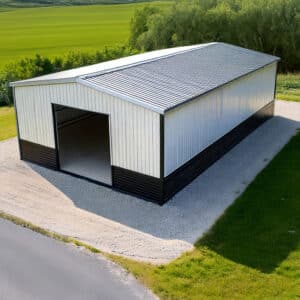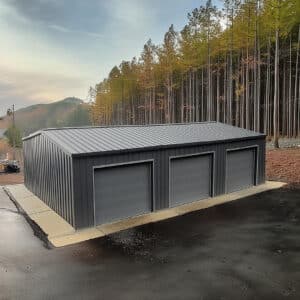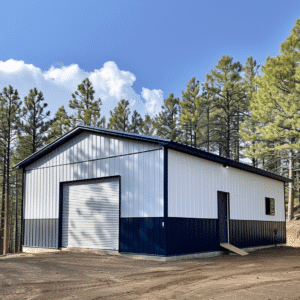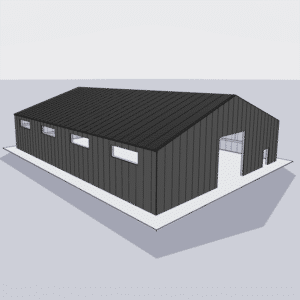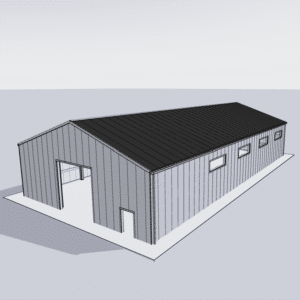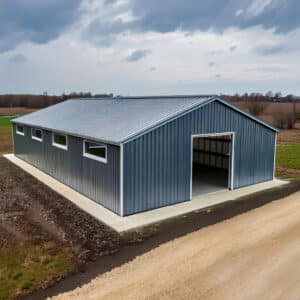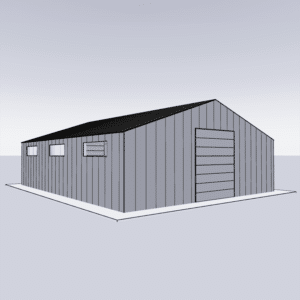Guide to Steel Building Insulation
Proper insulation is essential for steel buildings, whether for residential, commercial, or industrial use.
Home
Steel Building Maintenance Guide
Building Insulation
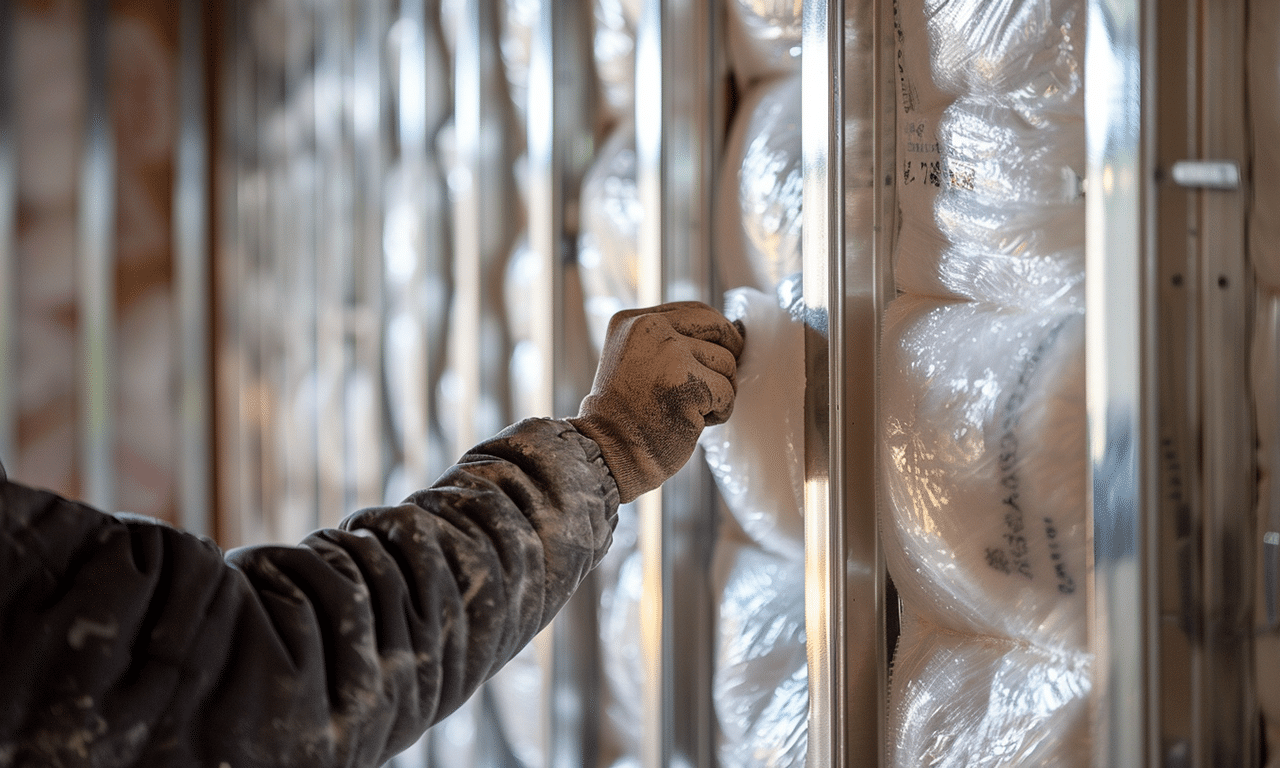
Proper insulation is essential for steel buildings, whether for residential, commercial, or industrial use. Not only does insulation help regulate temperatures and improve energy efficiency, but it also prevents condensation, moisture damage, and noise issues. In this guide, we’ll walk you through the types of insulation available, the benefits of each, and tips on how to choose the right insulation for your steel building.
Why Insulate Your Steel Building?
Steel buildings are naturally excellent at resisting harsh environmental conditions, but without proper insulation, they can become uncomfortable due to temperature fluctuations. Insulation provides several benefits:
- Energy Efficiency: Reduce heating and cooling costs by maintaining a stable indoor climate.
- Condensation Control: Insulation helps control condensation that can damage your steel building’s structure and interior.
- Soundproofing: Minimizes external noise, making the building quieter and more comfortable, especially in residential or office applications.
- Moisture Protection: Prevents moisture buildup, which could lead to mold, mildew, and corrosion.
Learn more about the full range of steel building designs and options in our Steel Building Design Guide.
Types of Insulation for Steel Buildings
There are various types of insulation materials suitable for steel buildings. Below, we explore the most common options:
1. Fiberglass Insulation
Fiberglass is one of the most popular and affordable insulation materials used in steel buildings.
- Benefits: Excellent thermal performance, cost-effective, easy to install.
- Best Used For: Residential steel buildings, workshops, and garages.
Check out our DIY vs. Full-Service Assembly Guide if you’re considering installing insulation yourself.
2. Spray Foam Insulation
Spray foam expands upon application, creating an airtight seal that provides excellent thermal insulation and moisture control.
- Benefits: Superior air and moisture barrier, reduces noise, prevents mold and mildew growth.
- Best Used For: Industrial steel buildings, high-moisture environments, and areas where airtight insulation is crucial.
3. Reflective Foil Insulation
Reflective foil insulation is a radiant barrier that reflects heat rather than absorbing it.
- Benefits: Highly effective in hot climates, easy to install, lightweight.
- Best Used For: Agricultural buildings, barns, and garages located in warm climates.
4. Rigid Board Insulation
Rigid board insulation consists of high-density foam panels that provide excellent insulation for steel buildings.
- Benefits: High R-value (insulation effectiveness), moisture-resistant, provides a smooth surface for finishing.
- Best Used For: Commercial buildings, warehouses, and areas where structural support is needed.
Learn about Customizing Your Steel Building to suit your insulation and climate control needs.
Insulation Installation Methods
Insulating a steel building can be done using different methods, depending on the type of insulation you choose and the building’s design:
- Over-the-Purlin Insulation: Insulation is placed over the steel framing (purlins) and then covered with panels. This method prevents thermal bridging (where heat escapes through the framing).
- Inside the Wall Cavity: For walls with cavities, insulation like fiberglass or rigid boards can be installed inside the wall, providing excellent temperature control.
- Spray-On: For spray foam insulation, the foam is sprayed directly onto the walls and ceiling, expanding to fill any gaps and providing a strong air barrier.
-
30×50 Metal Building MB212305014W0 Deposit
$18,000.00 Add to cart -
30×50 Garage Package Deposit
$8,500.00 Add to cart -
30×30 Garage Package Deposit
$8,500.00 Add to cart -
20×40 Garage Package Deposit
$5,500.00 Add to cart -
60×80 Steel Building Kit Deposit
$20,000.00 Add to cart -
50×100 Steel Building Kit Deposit
$20,000.00 Add to cart -
50×80 Steel Building Kit Deposit
$20,000.00 Add to cart -
50×60 Steel Building Kit Deposit
$20,000.00 Add to cart
Factors to Consider When Choosing Insulation
When deciding on the right insulation for your steel building, several factors should be taken into account:
- Climate: The climate in your area will largely dictate the type of insulation you need. In colder climates, you may need thicker or higher R-value insulation to retain heat, while in warmer climates, radiant barriers may be more effective.
- Building Use: If your steel building is used for residential or commercial purposes, better insulation for soundproofing and climate control is essential.
- Budget: Some insulation types, like fiberglass, are more affordable but may need to be replaced sooner. Others, like spray foam, are costlier but provide better performance and longevity.
- Moisture and Condensation: In areas with high humidity, it’s important to use moisture-resistant insulation to prevent damage and mold growth.
Need help planning your building’s insulation? Explore our Full-Service Construction Options for expert guidance.
Insulation for Different Steel Building Types
- Residential Steel Buildings: Homes or offices require insulation that provides good soundproofing and thermal comfort. Spray foam or fiberglass insulation are often used in these applications.
- Agricultural Steel Buildings: Buildings like barns and storage facilities need insulation to protect livestock or equipment. Reflective foil or spray foam insulation can help in keeping the temperature stable.
- Industrial and Commercial Buildings: Large steel structures like warehouses and factories may require high-performance insulation like rigid boards or spray foam to ensure energy efficiency and reduce noise.
Discover the variety of Steel Building Kits that can be customized with insulation options to meet your needs.

Residential Construction
Your dream home or residential steel building project is in good hands with us.
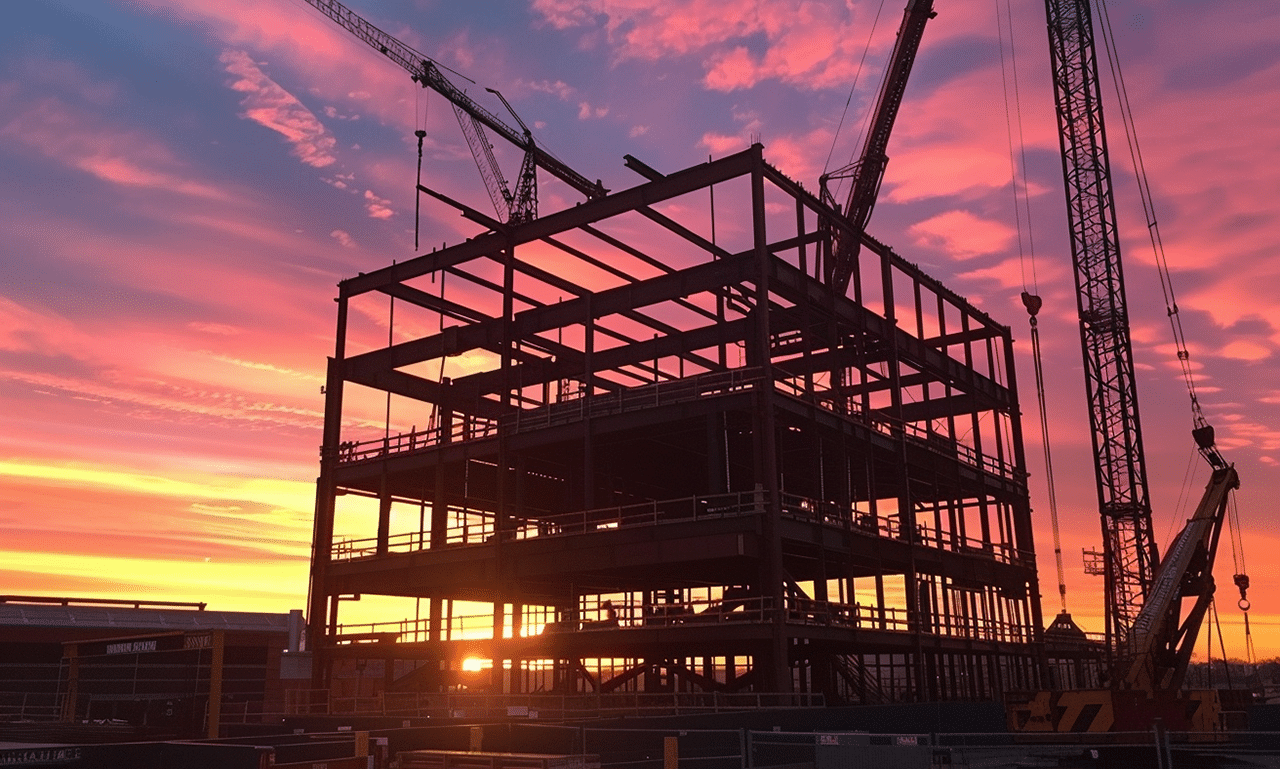
Commercial Construction
From warehouses to office spaces, we manage the design, construction, and ...

Custom Building Projects
Tailoring every aspect to your vision, our Building Projects service delivers unique steel structures
Maintaining Insulation in Steel Buildings
Once your insulation is installed, regular maintenance is necessary to ensure it continues to perform well:
- Inspect for Moisture or Mold: Periodically check for moisture damage or mold growth, especially if your building is in a high-humidity area.
- Replace Damaged Insulation: If any part of the insulation becomes damaged due to pests, water, or wear and tear, replace it immediately to avoid further issues.
- Check Seals: Ensure that all seals around windows, doors, and joints are intact to prevent drafts and energy loss.
For long-term care, follow our Steel Building Maintenance Guide.

Describe Your Project
Share your project details, and we’ll assign you an expert to provide tailored advice and guide you through the next steps.
Step 02

Get a Tailored Quote
Based on your project requirements, we’ll provide a customized quote that includes design, materials, and any additional services you may need.

Questions - Approvals
Review the project plan and design we propose. Once you approve, we’ll finalize the timeline and prepare everything to start the process.

Start Building
Our skilled professionals will begin the construction process, delivering high-quality workmanship and keeping you informed every step of the way.
FAQ’s
What are the benefits of choosing a steel building
Steel buildings are durable, cost-effective, energy-efficient, and customizable for a variety of uses, from residential to commercial projects.
How long does it take to complete a steel building project?
The timeline depends on the project’s size and complexity, but most steel building projects can be completed faster than traditional construction.
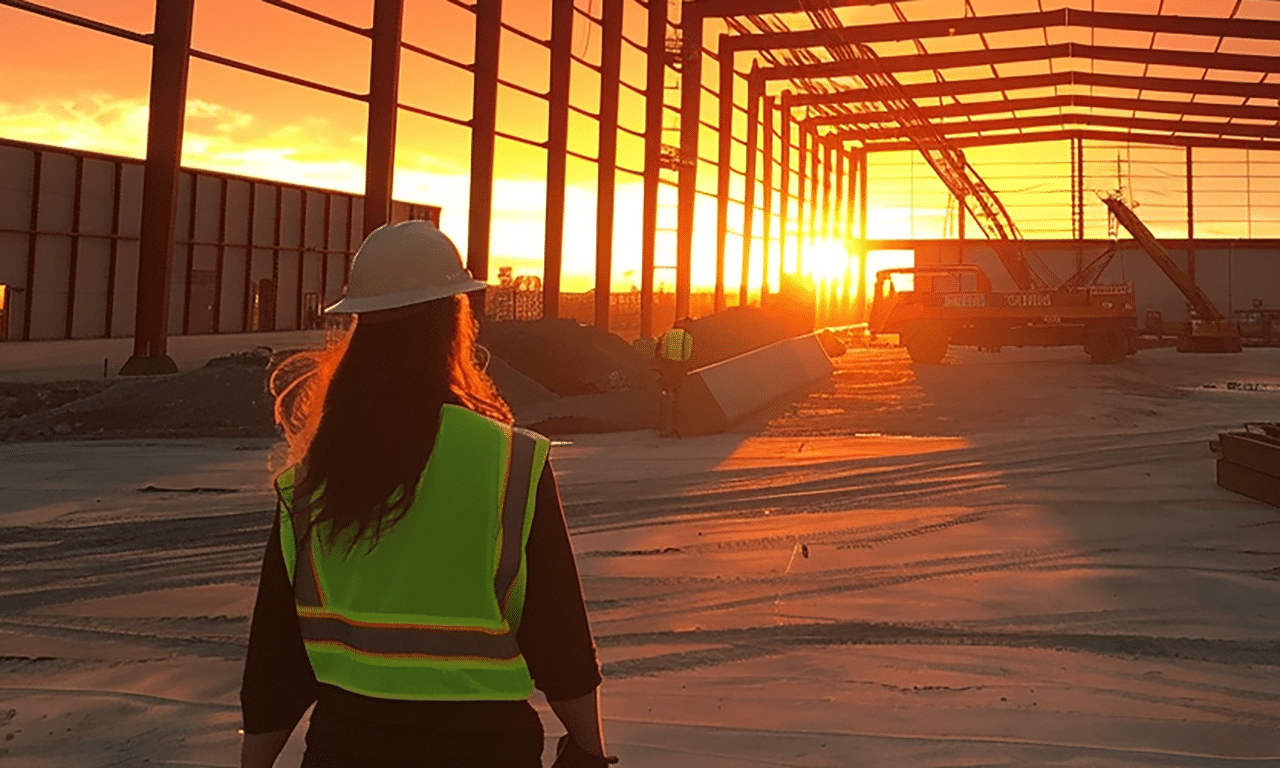
Do you offer custom designs for steel buildings?
Yes, we provide fully customized steel building designs to meet your specific needs, whether residential, commercial, or industrial.
Are steel buildings energy-efficient?
Yes, steel buildings can be designed with insulation, reflective materials, and energy-efficient features to reduce operational costs.
Proper insulation is essential for maintaining energy efficiency, comfort, and durability in steel buildings. By choosing the right insulation for your needs, you’ll be able to protect your building from temperature extremes, moisture, and noise, while also reducing your energy bills.
For more information on steel building customization, insulation options, or turnkey construction services, visit our Metal Buildings section or Contact Us today for expert guidance.
Your Building Project, Simplified
- Clear, upfront pricing
- Thorough evaluation to ensure the best value for your investment
- Flexible customization options
- Fast delivery times
- Expert guidance to keep you fully informed at every step
Contact


